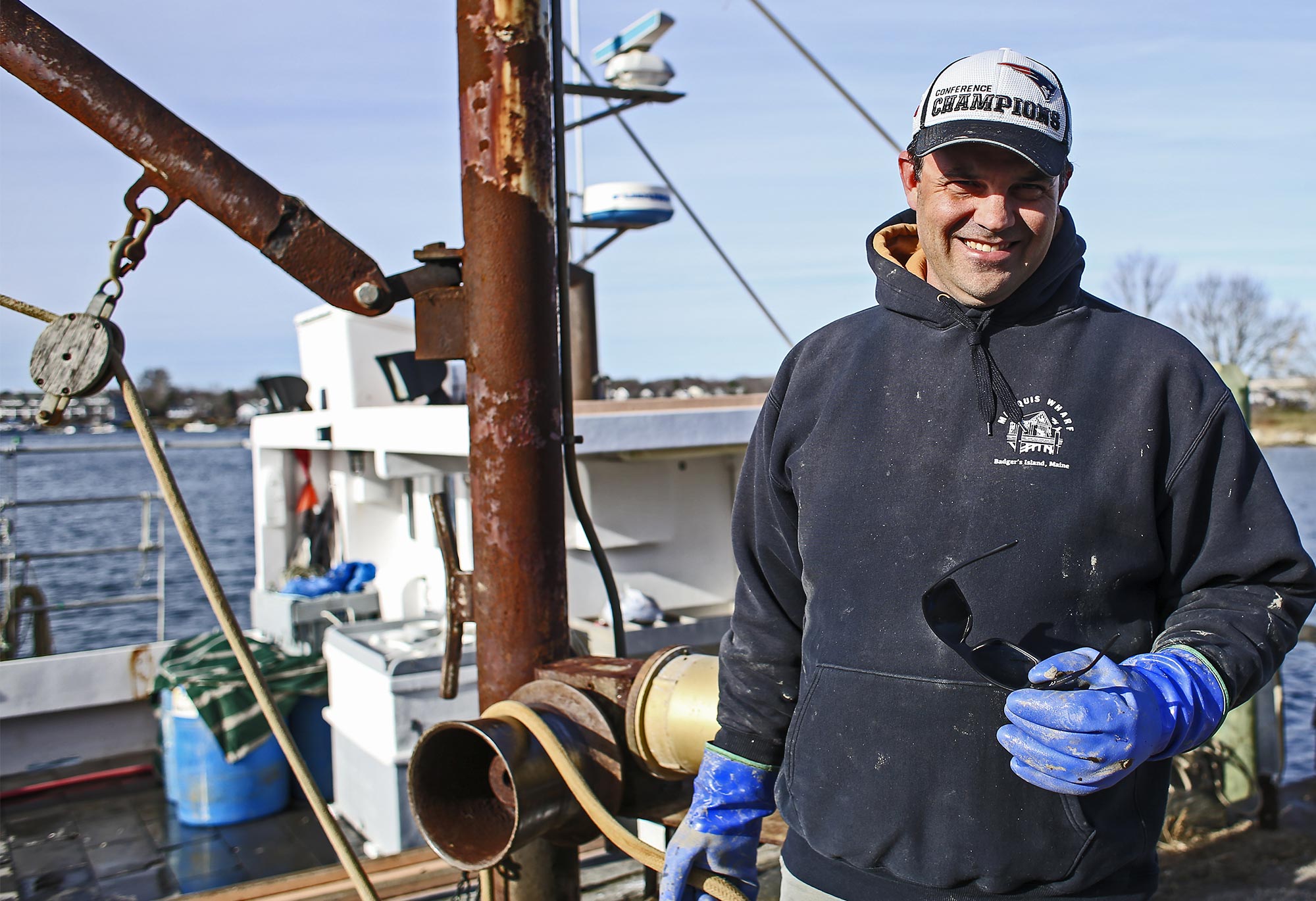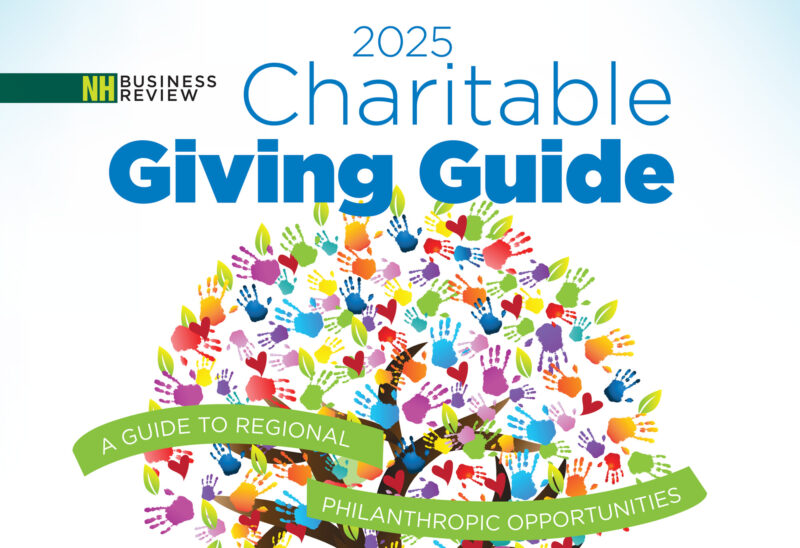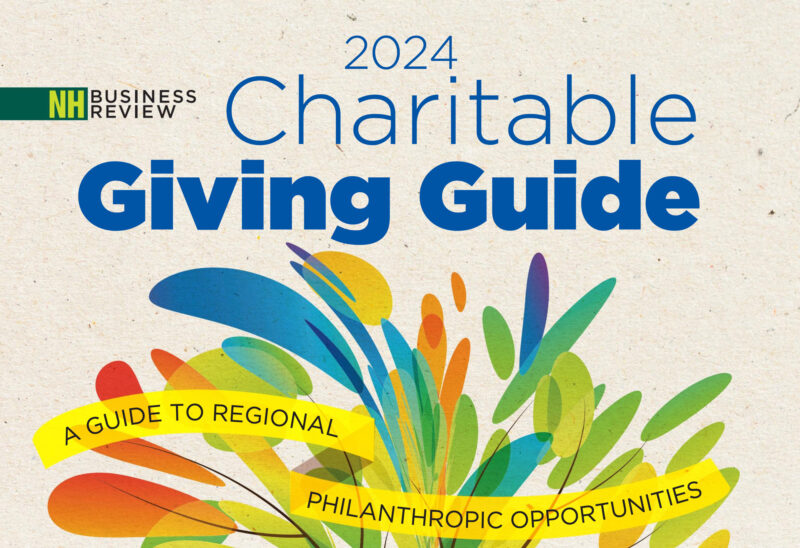Jamie Hayward, captain of both the Isabelle Nicole and the Heidi Elizabeth, has been fishing since he was 12 years old. He has never earned a paycheck doing anything else.
But Hayward, like all small-boat operators, has been facing tough times for years – as fisheries decline, fishing quotas tighten and new regulations further challenge the industry.
The Nature Conservancy is trying to help: working to improve the ecological health of the Gulf of Maine and restore declining fisheries so that local fishermen like Hayward can maintain their livelihoods.
“We envision a healthy, resilient Gulf of Maine ecosystem,” said Mark Zankel, state director of The Nature Conservancy in New Hampshire. “And we would like fishing to be economically viable for the next generation…This work is right at the intersection of conservation interests, local and cultural heritage, and economic interests.”
The Nature Conservancy (TNC) is collaborating with local fishermen and the University of New Hampshire. The Charitable Foundation has made a $250,000 loan through its new Impact Investment Fund to support the work.
Impact investing means that the Foundation can put more dollars to work in communities, making targeted investments with strong New Hampshire partners. The program uses a portion of the Foundation’s invested capital (endowment) for these investments – not grant dollars. Investments are made with the intention of having an impact that aligns with the Foundation’s mission and generates a financial return to be used for grantmaking. The impact investment program in its current form is new, but the Foundation has a long history as an impact investor – having made more than $6 million in loans to nonprofits since the early 1970s.
The new loan will help TNC expand its “permit bank” program, aimed at maintaining access to Gulf of Maine ground-fishing permits for local fishermen – and fostering collaboration among fishermen, scientists, and conservation groups.
This investment complements Foundation grants to TNC and others to help restore and protect the Great Bay estuary. Kevin Peterson oversees the Foundation’s environmental grantmaking and co-manages its Impact Investment program.
“Part of TNC’s strategy to restore Gulf of Maine fisheries is to protect and restore estuaries that serve as spawning and nursery areas for fish,” Peterson said. “Protecting the Great Bay watershed will mean cleaner water flowing into Great Bay and a healthier estuary where young fish can thrive. It’s all connected.”
Commercial permits that allow a boat to take a percentage of the Gulf of Maine’s allowable catch (or “quota”) on groundfish like cod, haddock, and flounder are often too expensive for local small-boat owners to buy. When these New Hampshire-based permits come up for sale and are bought by larger operators from other ports, Zankel said, “they are likely not coming back. It’s hard to have a local fishing industry or locally-sourced seafood if local fishermen don’t have access to fish.”
So TNC is raising and borrowing money to buy the permits, keeping them local, and making them available for use by local fishermen. Those fishermen, like Hayward, are collaborating on research on sustainable fisheries and reduction of impact on marine habitats. “You can’t save the Gulf of Maine without tapping into the deep knowledge and expertise of the people out on the water,” Zankel said.
Fishermen helping with the research can use portions of the quota on TNC-held permits at no cost.
In the long-term, TNC plans to turn ownership of the permits over to local fishermen through a cooperative system. “We’re trying to build a bridge to a better future,” for the local fleet and for the Gulf of Maine system, Zankel said.
Hayward will be testing some new nets as part of the project this year. He hopes the nets – which he also helped design — will allow fishermen to better target species they are allowed to catch more of and avoid those (like Atlantic Cod) that are subject to tight restrictions. Hayward also helped with a study to measure water temperatures – affixing gauges to his nets and tracking data with an onboard system. (Research that is especially important, given that the Gulf of Maine is warming more quickly than most ocean environments.)
“Fishermen are falling by the wayside every day,” Hayward said. TNC’s efforts in the Gulf of Maine are helping the industry to “take steps to move forward in the future. It’s good to have some allies like that.”
Read more about the Foundation’s Impact Investment program.













![Oluwakemi Olokunboyo of Dover received a McNabb scholarship to study nursing at Great Bay Community College [Photo by Cheryl Senter]](https://www.nhcf.org/wp-content/uploads/2024/05/Scholarship-Hero-800x548.jpg)
![Indrika Arnold, Senior Wealth Advisor, the Colony Group [Photo by Cheryl Senter]](https://www.nhcf.org/wp-content/uploads/2024/05/Indrika-Arnold-Hero-800x534.jpg)




